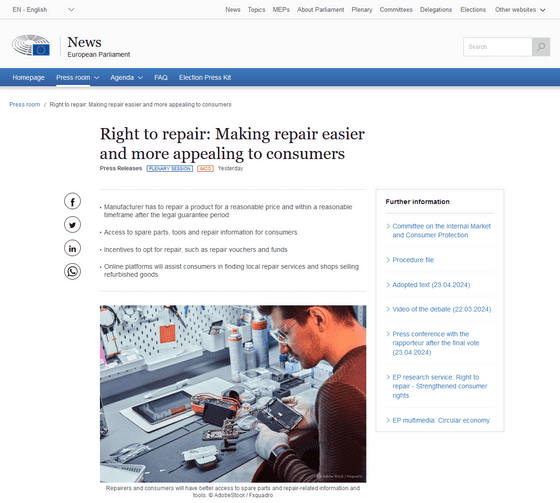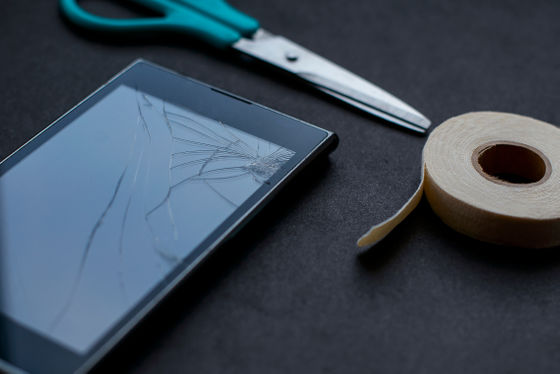EU adopts 'right to repair' rules requiring manufacturers to provide free repairs

The European Parliament announced on April 23, 2024 that it had adopted a Directive to legally establish the 'Right to Repair' with a majority of 584 votes in favor, 3 against, and 14 abstentions. The Directive will be enacted into law in member states after a two-year grace period.
Right to repair: Making repair easier and more appealing to consumers | News | European Parliament

'Right to repair': Questions & Answers
New rules to massively strengthen EU's right to repair successfully through European Parliament with 584 votes for, just 3 against | PC Gamer
https://www.pcgamer.com/hardware/new-rules-to-massively-strengthen-eus-right-to-repair-successfully-pass-through-european-parliament-with-584-votes-for-just-3-against/
Although it has been mandatory for the EU to provide a two-year warranty on products for some time, consumers have tended to choose free replacement over free repair due to the need for expensive parts and specialized software for repairs, the inconvenience of repairs, and other factors. In addition, many of the products returned for replacement were discarded rather than recycled, even though they were still usable.
Under the new rules, if a product breaks during the warranty period and the repair cost is equal to or less than the cost of replacing it, sellers will be required to repair it free of charge within a reasonable period of time without causing inconvenience to consumers.

Manufacturers, on the other hand, would be required to provide spare parts and tools at a fair price, would be prohibited from using contractual clauses or hardware or software technology that impedes repairs, and could not prevent independent repairers from using second-hand or 3D-printed spare parts.
In addition, manufacturers will no longer be permitted to refuse to make repairs solely for financial reasons or because the repairs have previously been performed by someone else, such as an outside contractor.
Applicable products include household washing machines, dryers, dishwashers, refrigerators, displays, vacuum cleaners, mobile phones, cordless phones and tablets.
In addition, manufacturers of products that are required to be repaired in the EU even after the warranty period has expired will be required to accept repairs for their products for 5 to 10 years from the date of purchase, unless it is technically impossible.
In addition, the new rules are scheduled to introduce a matching platform to help consumers find appropriate repair services, and a 'European Repair Standard' is also planned to be formulated to certify businesses that provide higher quality repair services.
Repairers will be required to provide consumers with a repair information form detailing key points such as the cost of repair, the duration of the repair, and replacement items during the repair, making it easier for consumers to compare different repair services.

Once the Directive has been formally approved and published in the Official Journal of the EU, member states will have 24 months to translate it into national law.
'The right for consumers to repair their products is now a reality - it will be easier and cheaper to repair them instead of buying expensive new ones. This is an important achievement for Parliament's commitment to empower consumers in the fight against climate change. This new law extends the legal warranty by 12 months if you choose to repair and improves access to spare parts, making repairs easier, cheaper and faster,' said René Repasi, Member of the European Parliament.
Related Posts:
in Hardware, Posted by log1l_ks







